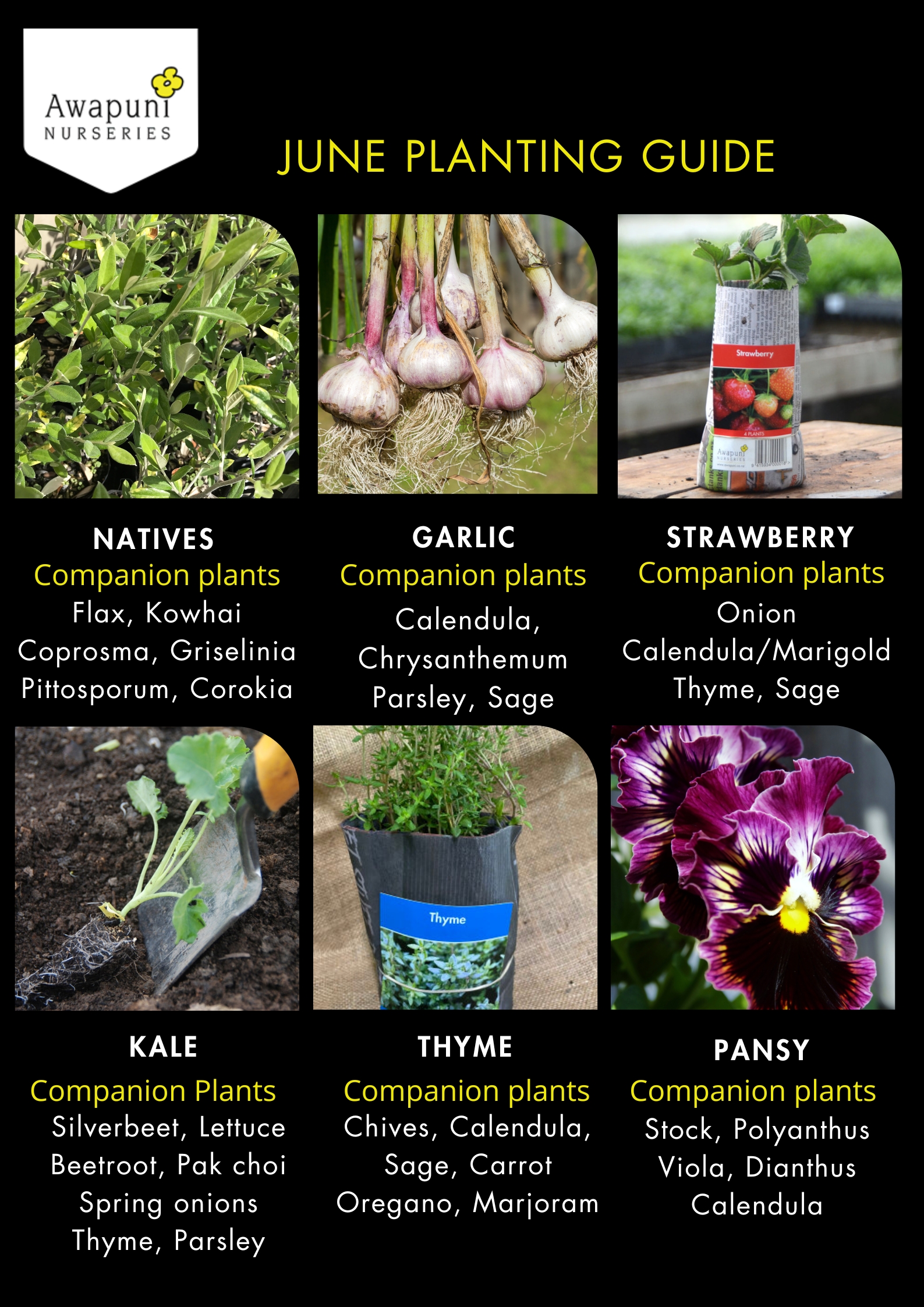Even as the temperatures drop and frosts start visiting, there's still much joy to derive in gardening. Winter is a time to slow down, research, and visualise your garden — and yes, keep planting! Whether you're transplanting seedlings, building hedges, composting, refreshing garden beds, or dreaming up new layouts, winter offers the perfect pause for satisfying garden work.
In this guide, we’ll share our top picks for the season: cold-hardy vegetables that thrive in cooler weather, herbs and flowers that help deter pests; bright, pollinator-friendly flower seedlings and hardy natives to keep the garden feeling cheerful, green and alive.
We’ve also included specific tips for both North and South Island gardeners, guiding you to make the most of your location and microclimate.
Prepare your Garden for Winter in New Zealand
1. Good soil is a must - A productive winter garden begins with healthy, rich and well-prepared soil. Start by turning over your garden beds and working in plenty of compost. Add natural fertilisers, such as sheep pellets, to boost nutrient levels and support your winter crops.
2. Remove Clutter - Clear out any leftover summer plants to reduce the risk of pests and disease, and make space for new winter-hardy seedlings.
3. Rake up fallen autumn leaves — they’re excellent for compost or as a natural mulch.
4. Clean tools - Take time to clean, sharpen, and repair your garden tools.
5. Strawberry & Garlic Season - June is also the ideal time to prepare beds for strawberries and garlic. Winter plants love rich, well-draining soil.
6. Plant protection - Mulching is especially important over winter. It helps retain moisture, regulate soil temperature, and protect plant roots from frost. Be prepared for occasional severe weather and frosts especially in the South Island.
7. Plan your planting - Consider **staggered planting** of your winter vegetables. This ensures a steady, continuous harvest throughout the season.
8. Keep Weeding - Yes even in winter!
9. It's time to create a list of things to do, research on companion plants & plan for spring.
Edible Garden - Vegetable Picks for the colder weather
It’s time for brassicas (broccoli, broccolini, cabbage and cauliflower) as they can handle the colder weather and can be planted generally all over New Zealand. Buying Awapuni seedlings will give you a good head start. Plant broad beans and peas will thrive in areas without frost.
Stagger Your Planting - lettuce, onions, peas, radish — every 10-14 days.
For the really cold areas down south, you may want to consider planting cavolo nero, beetroot, silverbeet, kale, spinach, garlic, strawberries and onion. These vegetables can survive outside or in ventilated tunnel houses.
Consider cover plants for used garden beds. Cover plants help your soil regain nitrogen content. Beans, peas and wild blue lupins will help improve the nitrogen content of your soil. Closer to spring, you can turnover the soil planted with these cover crops and use these crops as live compost by burying them in the soil. This process will improve your soil structure.
Plant to fertilise your plants. When days get shorter and colder, your plants need all the help they can get.
Our strawberry seedlings are here, you may add your name on the notifications list for all our strawberry bundles and products that you may be interested in! Note that planting garlic next to strawberry plants can be beneficial as they deter pests. We suggest planting garlic in another container and position it next to strawberry beds.
Very soon, we’ll have seed potatoes on our website too.
Flower Garden
Colourful pansy flowers, calendula, stock are hardy annuals. They bloom generously and love the cold weather. They can be great companions with many beautiful flowering plants like roses, lobelia and vegetables like cabbages!
Even in winter, flowers play a vital role in your garden's productivity. Blooming plants like calendula, violas, and pansies attract pollinators which help increase yields for fruiting and flowering crops well into spring. Plus, they add much-needed colour and life to your winter beds.
Incorporating flowers also supports beneficial insects that help manage pests naturally — an especially helpful strategy when using fewer sprays during the cooler months.
Choose Cold-Tolerant Blooms
Opt for hardy varieties like polyanthus, stock, pansy, and winter-flowering calendula, which continue to flower in cold conditions and cope well with frost.
Use Flowers as Companion Plants
Many winter flowers double as companion plants. For example, calendula helps deter aphids and whiteflies, while nasturtiums can act as a trap crop, drawing pests away from your vegetables.
Hardy Herbs
If you are thinking of adding herbs to your winter garden, the cold-hardy ones are parsley, oregano and rocket. Herbs are excellent companion plants for strawberries! They are natural pest deterrents. You may want to consider planting herbs in containers next to strawberries and allow some of them to flower to bring in pollinators this colder season. Sage, Dill, Chives, Thyme are herbs that are great to plant next to strawberries. See all our herb bundles here.
Natives
Winter is still a good time to plant all natives as they can thrive in New Zealand’s unique climate. Native flaxes, hebes, grasses, and trees thrive even in winter.
Awapuni Nurseries is involved in the commercial cultivation of Radiata Pine and can supply high-volume orders suitable for 10 to 100-hectare plantations. We currently have 150,000 Radiata Pine seedlings available for the 2025 planting season.
If you’re planning a larger-scale project or have specific planting requirements, we also offer contract growing solutions. Please get in touch with Henri on 021 340 300.
